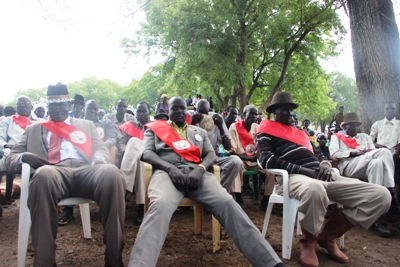Jonglei authorities empower local chiefs on judicial duties
April 12, 2016 (BOR) – Authorities in South Sudan’s Jonglei state organised a workshop to empower chiefs on judicial capacities to handle cases within their jurisdiction.

The meeting that aimed at putting boundaries between conventional and customary laws was another way of promoting peace building and peaceful co-existence among the various communities in the entire Jonglei state.
“This was workshop was mean for restoration and empowerment of traditional authorities for the implementation of law and order. Because traditionally, law and order has been the responsibility of chieftainship in our traditional societies. But their powers and responsibilities were eroded during the wars, many situations of conflict created themselves between the communities”, state governor Phillip Aguer said Tuesday in Bor.
The chief, he said, reviewed their status as custodians of traditional and customary laws
“Issues related to the linkages between the customary and conventional laws were raised, with the chief complaining that some of their powers had been taken away by judges”, said Aguer.
The chiefs complained that some of issues they are meant to handle go to wrong courts.
“This was discussed at length and the chief agreed that they would select a number of chiefs that would be sitting together with judges to discuss the linkages and the differences between the conventional and customary laws”, added the governor.
It was not clear as to when the chiefs and judges would meet to resolve the differences.
The highest traditional court is headed by a paramount chief in the counties, who selects the payam head chiefs to help them in settling matters arising in various communities.
According to the Local Government Act, 2009 for South Sudan, customary law courts don’t have jurisdiction to hear criminal cases unless they have customary interface and have been referred to the customary law courts by the statutory courts.
(ST)
